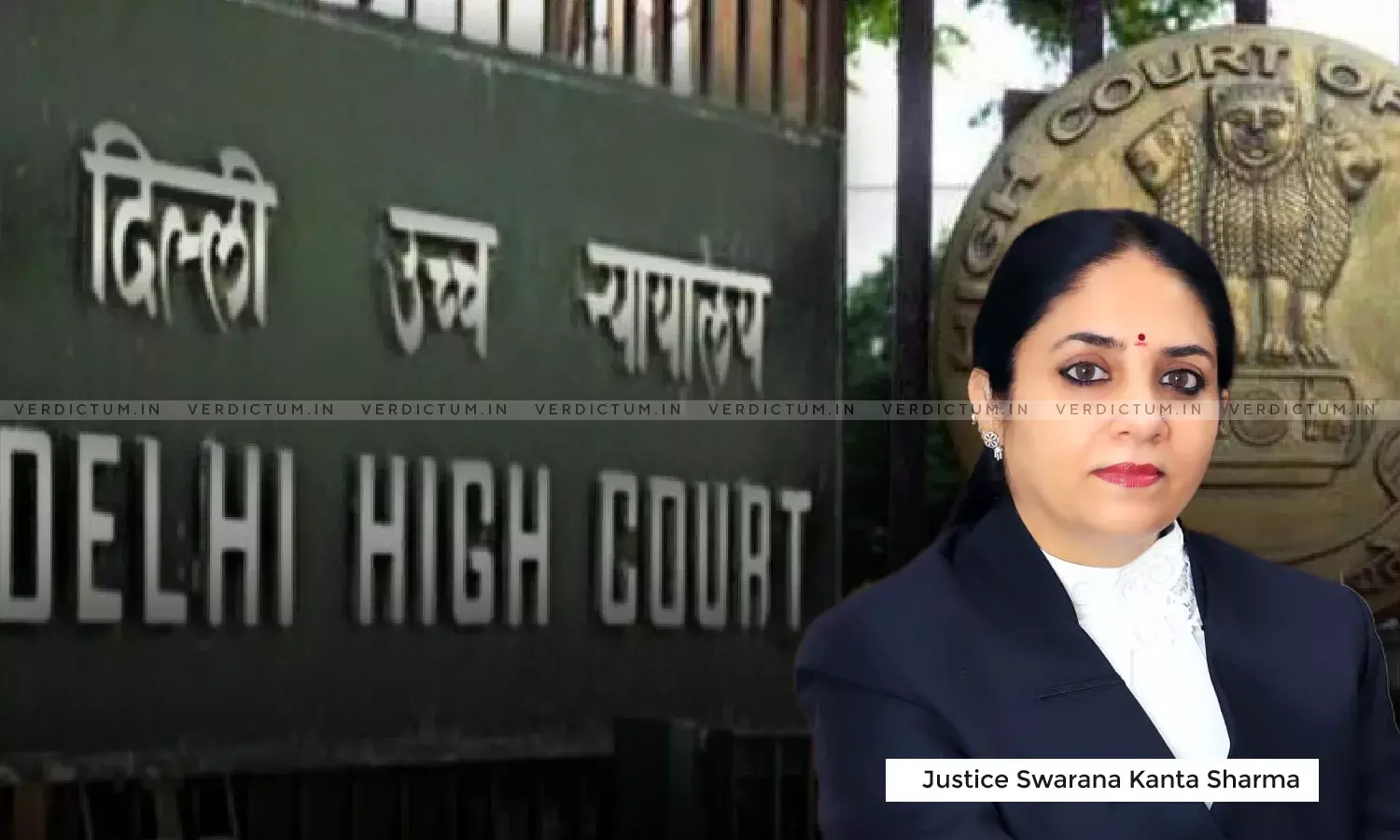Presumption U/s 118(A) & 139 NI Act Shall Be In Favour Of Complainant If Issuance Of Cheque Towards Legally Enforceable Debt Is Not Disputed: Delhi HC

Justice Swarana Kanta Sharma, Delhi High Court
While upholding the presumption under Section 118(a) and 139 of the Negotiable Instruments Act, 1881 (NI Act) in a cheque bounce case, the Delhi High Court held that when there are clear and specific averments in the complaint regarding the commission of offenses under Sections 138/141 of the NI Act, the factual issues and the potential defence of the accused individuals could not be assessed and settled by the court in a petition under Section 482 of the CrPC.
A Single Judge Bench of Justice Swarana Kanta Sharma observed that “the presumption under Section 118(a) and 139 of NI Act shall be in the favour of complainants, since the issuance of cheques is not disputed and it has to be presumed that the cheques in question had been issued towards some legally enforceable debt”.
Advocate Tanmaya Mehta appeared for the Petitioner, whereas Advocate Rajiv Aggarwal appeared for the Respondent.
As per the brief facts, the petitioners/accused and other property owners had expressed the intention to sell their property due to financial need. The complainant had agreed to buy the property and made partial payments. However, the petitioners changed their decision, promised refunds, and handed over the property to another buyer. The petitioners had issued two cheques to settle the debt, but both cheques were dishonored due to insufficient funds. The complainant issued legal notices, and two complaint cases were filed for the dishonored cheques. Summons were issued against the accused, which led to the filing of petitions in the court.
After considering the submission, the Bench observed that in the present case, the petitioners had not disputed the issuance of the cheques in question, including the signatures, date, and amounts mentioned on the cheques. However, they contested the purpose or reason behind issuing the cheques, claiming that it was not to settle any obligation or pay any legally enforceable debt.
The Bench further observed that the question of whether or not a cheque was issued in discharge of a legally recoverable debt should be determined during the course of the trial.
Holding that proceedings under Section 138 of the NI Act should not be quashed on such grounds at the pre-trial stage, the Bench clarified that the issues raised before it could only be decided by the Trial Court at the appropriate stage, based on their individual merits.
Thus, the High Court concluded that because a prima facie case existed against the petitioners/accused under Sections 138/141 of the NI Act, there were no grounds to dismiss the contested complaint cases or the orders framing notices against the petitioners/accused.
Cause Title: Rajendra Prasad Mittal and Anr. v. Manish Garg and Anr. [Neutral Citation: 2023: DHC: 7603]
Click here to read/ download the Judgment

